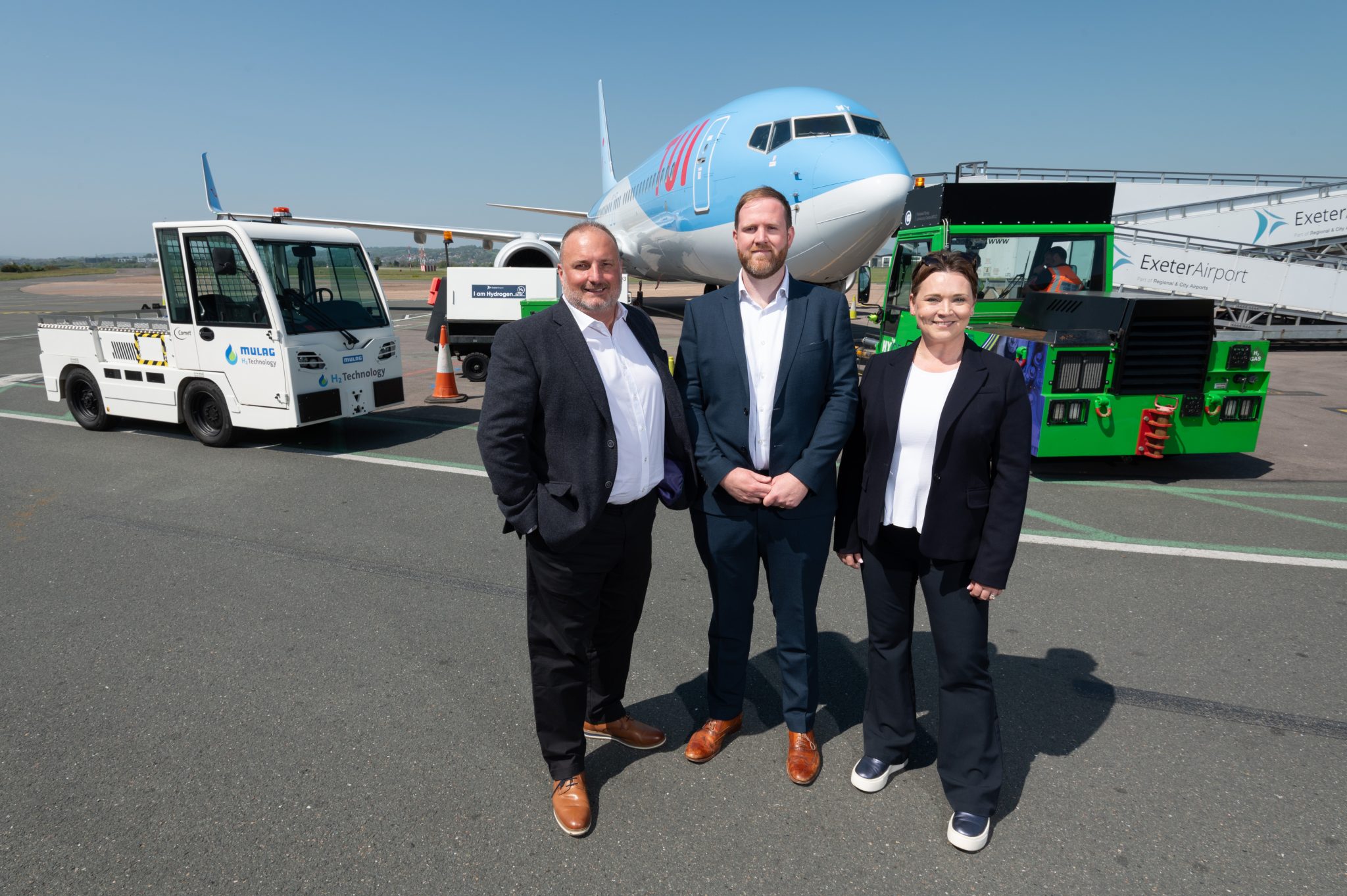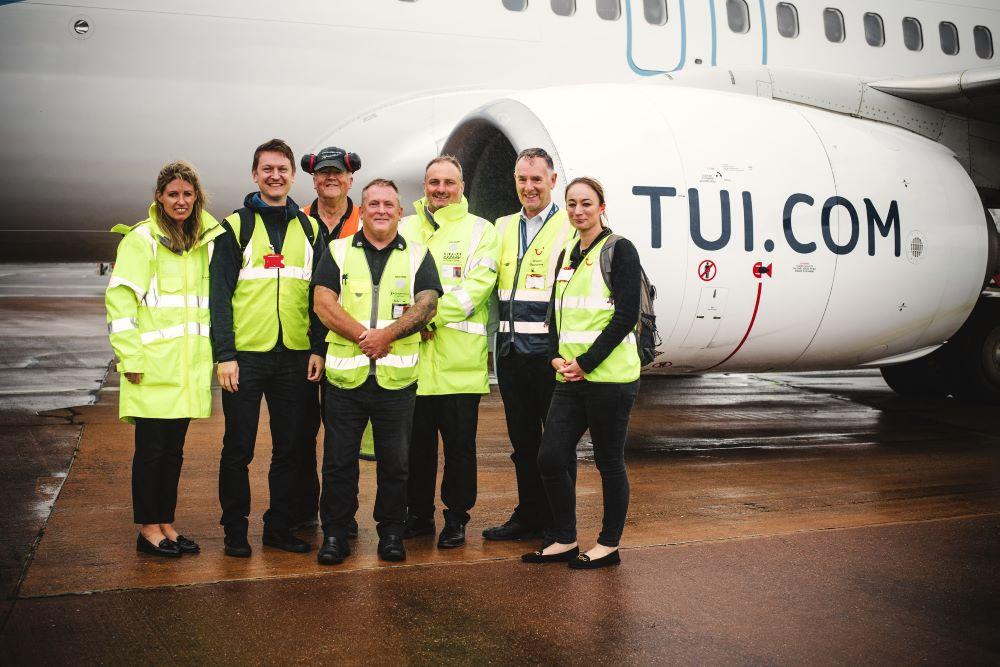In a landmark move towards sustainable aviation, Exeter Airport has successfully conducted the United Kingdom’s first live hydrogen-powered turnaround of a commercial aircraft. This pioneering demonstration marks a significant step in decarbonising airport ground operations and advancing the UK’s Jet Zero ambitions.
A Collaborative Effort Towards Sustainability
The trial, conducted on 29 April 2025, involved a TUI Boeing 737-800 aircraft undergoing a complete turnaround using hydrogen-powered ground support equipment (GSE). This included a baggage tug, pushback tug, and ground power unit (GPU), all operating on green hydrogen produced from renewable energy sources. The equipment was refuelled using a HyQube 350 refueller supplied by Fuel Cell Systems Ltd, with hydrogen provided by Protium.
This initiative was a collaborative effort between Exeter Airport, TUI, Cranfield University, ULEMCo, MULAG, and Boeing, under the auspices of the UK Civil Aviation Authority’s (CAA) Hydrogen Challenge programme.

Expert Insights on the Trial’s Significance
Stephen Wiltshire, Managing Director of Exeter Airport, expressed pride in hosting the trial
“We’re proud to have hosted this important trial, which reflects our commitment to sustainability and innovation. The demonstration shows how hydrogen can be integrated into day-to-day airport operations, with lessons we can share across our airport group and the wider sector.”
Dr Thomas Budd, Associate Professor of Airport Decarbonisation at Cranfield University, highlighted the broader implications:
“Being able to demonstrate these technologies as part of a live aircraft turnaround not only demonstrates the viability of hydrogen as a fuel for decarbonising ground operations in the short-term, but will also help develop the regulatory framework to support hydrogen aircraft in the years to come.”
Giancarlo Buono, Group Director of Safety and Airspace Regulation at the CAA, noted:
“This demonstration brings the UK a step closer to realising hydrogen as a safe and viable energy source for aviation. It showcases the potential of decarbonising ground operations today, while helping shape the regulatory frameworks needed for tomorrow.”
Building on Previous Research
The trial builds upon earlier studies conducted by Cranfield University and TUI, which analysed Exeter Airport’s GSE operations. Findings revealed that over 78,000 litres of diesel were consumed annually, resulting in nearly 200 tonnes of CO₂ emissions. Ground power units were identified as the largest emission source, contributing nearly 39% of the total emissions.
Future Implications and the Path Ahead
This successful demonstration is part of the CAA’s broader Hydrogen Challenge, funded through the Regulators’ Pioneer Fund overseen by the Department for Science, Innovation and Technology. The initiative aims to enable the safe, early adoption of low- and zero-emission aviation technology and infrastructure.
Amanda Lyne, Managing Director of ULEMCo, emphasised the versatility of hydrogen:
“The number of hydrogen technologies on show here demonstrates the versatility of this clean fuel in a range of applications. As real-world examples of hydrogen fuel usage increase, the case for investment in UK-wide refuelling infrastructure grows ever stronger.”
The insights gained from this trial are expected to inform future safety and regulatory frameworks for the airside handling of hydrogen, paving the way for hydrogen-fuelled aircraft in the years to come.



